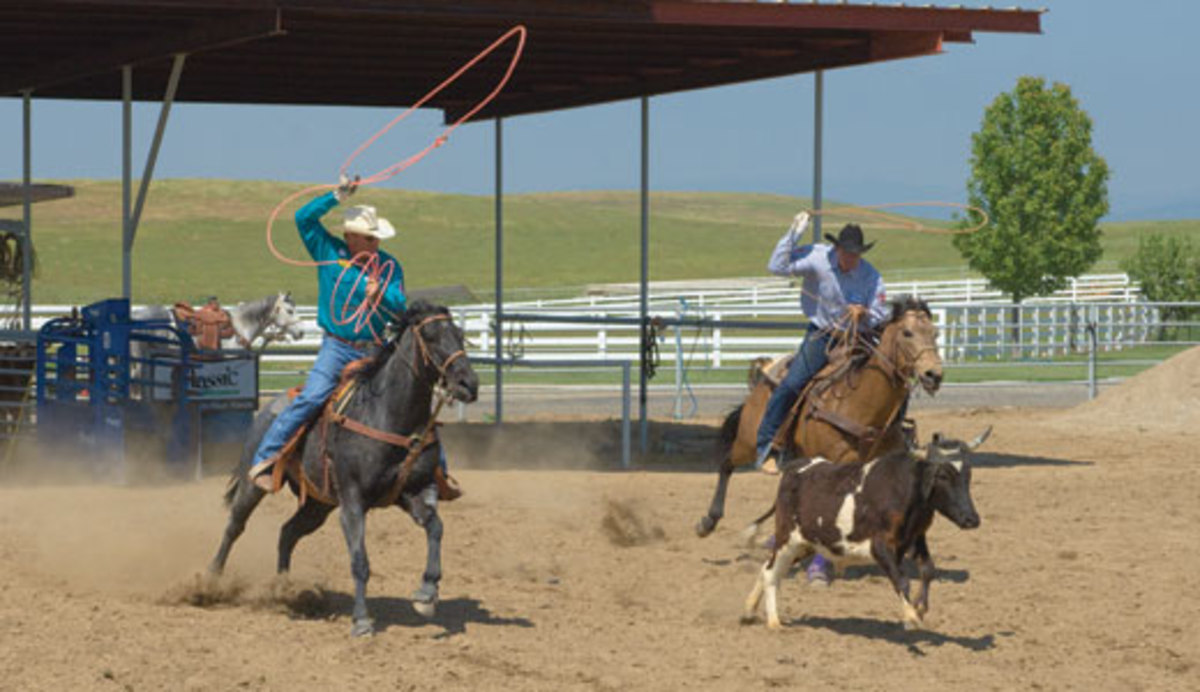Having a really well-broke horse makes for a lot more enjoyable experience and a good relationship between a roper and his horse. It’s also a lot easier to rope consistently and be competitive if you have a good working relationship with your horse and he’s easy for you to control.

Nowadays, there are quite a few horses that eventually become rope horses that come out of reining, cutting and working cow horse breeding programs. Those horses have been trained and broke specifically for those other events, which is really nice because they’re already broke pretty well when you start roping on them. It’s really easy to teach horses like that a pattern, because they’ll go where you want and respond to what you’re trying to do with them.

We work on people at schools to give them horsemanship-related instruction on how to get their horses under control in all parts of their run, heading and heeling, from the back of the box on. It not only provides a safe environment for the roper, but also the maximum opportunity to be competitive. Being at the right place at the right time-being in position-gives you the greatest chance for success.

I would recommend that anyone who has the opportunity or ability go to a horsemanship class. It’s a good idea to learn the basic principles of breaking your horse, keeping him broke and learning what you can do to keep him under control and confident. That’s the major factor you’re dealing with in roping. Your horse is your mobility. He can make it really easy or almost impossible.

A lot of people have time constraints that prevent them from roping all the time, such as work, school or whatever. But time spent just riding your horse and teaching him to be able to do certain things is good. To be able to get him to speed up, slow down, stop, respond to leg pressure, side-pass both ways, bend and flex, and be soft in the bridle takes time. But the more time spent working with your horse on those things will help your cause.

Roping is a speed event, and when you speed a horse up and ask him to run fast and do things on the run it’s very easy to lose control. If you can maintain that control, so you can stay in your pattern and be in the right place in all parts of your run, that’s what makes the difference in the ability to make successful runs.

I’ve been doing quite a few lessons and clinics here lately, and have a pretty full schedule through the fall. Probably the majority of my instruction is horsemanship-related. We work on the mechanics of the students’ roping abilities also, but most of it really comes down to how they’re handling their horses, how to get them under control and in position, and what type of a pattern to put them in. Roping is all based on position. Being able to catch successfully at either end is based on your ability to get in position.










